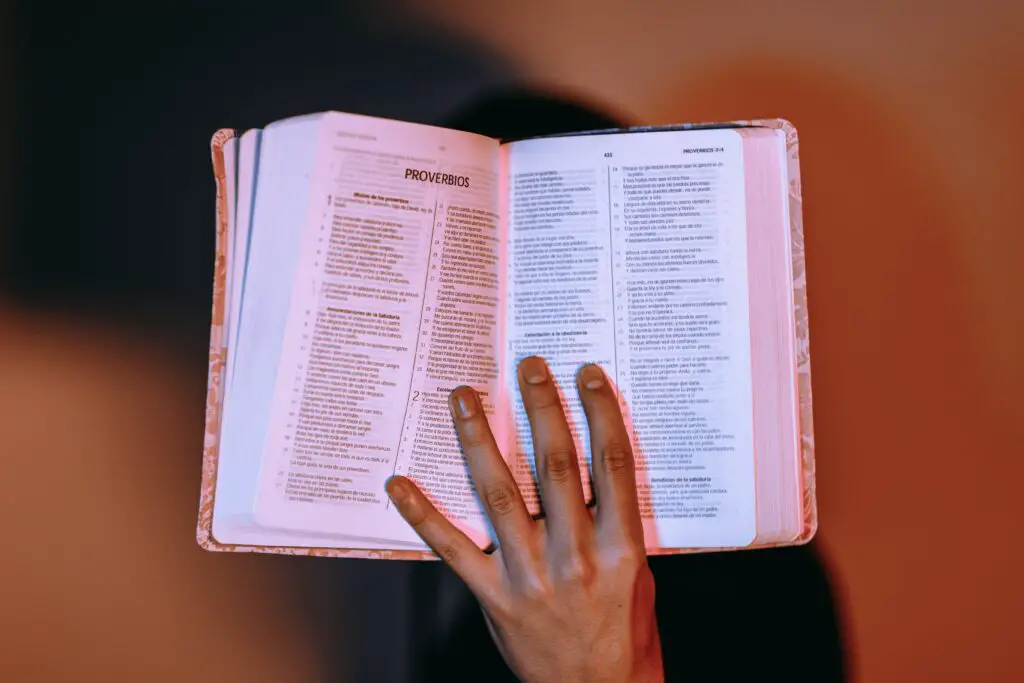When you think of a pastor, you might think of someone full of compassion, dedication, and selflessness. But what if the person at the front of your church is the total opposite—a narcissist? Dealing with a narcissistic pastor can throw you for a loop, considering how vital their role is in guiding both spiritual and community growth. Spotting the signs that something’s off isn’t just about keeping yourself safe; it’s about looking out for the whole community. It’s key to understand what’s really going on behind that charming facade, so you can ensure everyone’s well-being and keep the community strong and healthy.

Table of Contents
Wolves That Look Like Sheep
Imagine stepping into your sanctuary, where the air is filled with hope and everyone’s face beams with kindness. It’s the last place you’d expect to find manipulation, right? But here’s the catch: a narcissistic pastor might just be at the helm, using that feel-good vibe to mask their true intentions. With a charming smile and reassuring words, they draw you in. However, this charisma is not about connecting or caring; it’s about control. They portray themselves as the perfect leader, all while subtly putting their own needs and desires first.
This makes them not just misleading but dangerous. They’re like wolves in sheep’s clothing, hard to spot and even harder to confront because they blend in so well with their surroundings.
Pastor’s Charisma and Narcissistic Traits
Charisma is usually the mark of a great leader, someone who can rally a crowd and make you feel like you’re part of something bigger. But in the hands of a narcissistic pastor, this trait morphs into a slick tool for manipulation. Such pastors often charm their way into the hearts of their congregation, building a loyal base of followers. But here’s the twist: they use this loyalty not to uplift the community, but to inflate their own ego and maintain control. Any hint of disagreement or criticism? It’s met with harsh reactions.
This creates a suffocating environment where saying anything less than praise feels like a risk, stifling honest conversation and breeding a culture of compliance rather than genuine faith.
How They Twist the Bible to Get Their Way
It’s disturbing when the good book gets caught in bad hands. A narcissistic pastor has a knack for twisting Biblical texts to suit their agenda. This isn’t about enlightenment or sharing faith; it’s about weaving their authority so tightly with scripture that it’s hard to argue without feeling like you’re questioning divine will itself. They might pick and choose parts of the scripture that emphasize obedience and submission, using them as divine endorsements for their control. This strategic manipulation doesn’t just mislead—it manipulates the spiritual path of the congregation, turning scripture into a tool of control rather than a source of liberation and truth.
How a Narcissistic Pastor Uses Guilt and Shame
When it comes to emotional manipulation, narcissistic pastors are pros. They wield guilt and shame like expert tools to keep their congregation in line. Imagine sitting through a sermon where every word seems to highlight your flaws or sins. This isn’t about spiritual growth; it’s control.
A narcissistic pastor thrives on making you feel unworthy or sinful, which in turn makes you lean more on them for spiritual guidance and approval. It’s a clever, manipulative tactic that binds your self-esteem to their approval. You start believing that without their guidance, you can’t possibly redeem yourself or grow spiritually. This dependency is what the narcissistic pastor aims for, keeping the congregation under their thumb by constantly feeding them small doses of guilt and shame.
The Pastor’s Close Family Members
The family of a narcissistic pastor often lives a dual life. To the outside world, they may seem like the perfect pastoral family, always smiling and never a hair out of place. But behind closed doors, the story can be very different. These families often bear the heaviest load of the pastor’s narcissistic traits. High demands, critical comments, and emotional neglect are part of their everyday life. The pastor’s spouse and children might feel immense pressure to uphold a flawless family image that supports the pastor’s public persona.
This pressure to appear perfect is exhausting and damaging, as it hides the real struggles and pain they endure. It’s a stark contrast to the loving and nurturing environment that one would expect in a family, especially one led by someone who should be a moral and spiritual guide.
Conclusion
Identifying a narcissistic pastor is more than a tricky task—it’s essential for the health of your spiritual community. Seeing these signs isn’t just about pointing fingers; it’s about understanding and action. This awareness can protect your community’s spiritual health and prevent the deep emotional and psychological scars that such leaders can inflict. Being informed and vigilant helps keep your community healthy, ensuring that leadership truly serves the congregation’s best interests and fosters a genuinely supportive and nurturing environment.
FAQ
What is the one question to identify a narcissist?
If you suspect someone might be a narcissist, ask them, “How do you handle criticism?” Their response can be very telling. Narcissists typically struggle with any form of critique, often reacting defensively or even aggressively. A normal conversation about their behavior may spiral into them making excuses, shifting blame, or playing the victim. This inability to engage constructively with feedback is a classic hallmark of narcissism. It reveals their need for constant admiration and an inability to consider they might be at fault.
What is a male narcissist’s weakness?
The Achilles’ heel of a male narcissist is often his ego. He thrives on affirmation and admiration, and anything that threatens this perception of himself can trigger a severe reaction. Pointing out a flaw or challenging his ideas can lead to significant discomfort for him. For those dealing with a narcissistic pastor, understanding this can be crucial. It’s like hitting a nerve that, once struck, can reveal the true extent of their narcissistic tendencies, often leading them to expose their manipulative behaviors in an attempt to maintain their crafted self-image.
What does the Bible say about narcissism?
While the Bible does not use the term “narcissism,” it frequently addresses the behaviors and attitudes at its core, such as pride, arrogance, and self-centeredness. Scriptures like Proverbs 16:18, “Pride goes before destruction, a haughty spirit before a fall,” highlight the dangers of such traits. These biblical principles warn against elevating oneself above others and emphasize humility and service, contrasting sharply with the self-focused nature of narcissism.
How to Deal with a Narcissist in Ministry?
Handling a narcissistic pastor requires a mix of tact and toughness. It’s key to lay down firm boundaries. Decide what you won’t put up with and hold firm on those decisions. Sometimes, getting advice from other respected leaders or mental health pros can make a big difference, giving you the support and direction you need. There might even be times when you need to step back a bit to keep yourself spiritually and emotionally safe. Remember, it’s totally okay to put your own health first and not feel bad about taking the necessary steps to protect yourself from unhealthy situations in your spiritual life.

